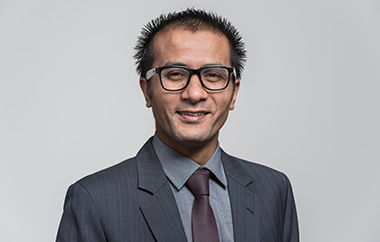PhD Student in Park Conservation and Ecotourism at Clemson University, United States of America
Current position: Assistant Professor of Environmental Science, Tribhuvan University, Nepal
Research focus: green economy, ecotourism, community forest, climate change
Anup is always positive about incorporating aspects of indigenous culture and best practices from elsewhere in the world to enhance the ecotourism sector of Nepal. Anup believes that developing the ecotourism sector is one of the fastest ways to foster the economic development of the country.
Beside his PhD research project in the United States, he is regularly involved in research related to environment, climate change, and ecotourism. He is also motivating his Nepalese students and helping in their research projects.
CV as submitted for the Green Talents award (2017):
Tribhuvan University, Nepal
Research focus: green economy, ecotourism, community forest, climate change
As both an environmental scientist and economist by training, Anup is well placed to carry out an interdisciplinary study that will bridge the gap between the environment and economics. Anup is embarking on a research project into Nepal’s ecotourism sector, in which he seeks to establish best practices in order to contribute towards his home country’s sustainable development.
Nepal has been the victim of several recent large-scale natural disasters, the worst of which being the 2015 earthquake. This not only destroyed a vast amount of infrastructure necessary for tourism, but also challenged the country as a safe and sustainable place to visit. Anup has identified developing the ecotourism sector as the fastest way of providing relief to the country. Ecotourism will also encourage climate-sensitive activities in vulnerable areas, as well as protecting indigenous practices.
Anup aims to support this development by assessing the ecotourism potential of different sites and evaluating the necessary physical infrastructure. He will complement this analysis with his research into the different indigenous practices of ecotourism in different parts of the country. Finally, he will compare his findings to best practices of ecotourism throughout the world. Anup will then disseminate his conclusions at the local, regional and national level for appropriate policymaking and planning.
The jury was convinced by Anup’s assertion that the development of the ecotourism sector is one of the most effective and sustainable ways of bringing relief to large parts of a country that has suffered from repeated natural disasters. They were impressed by Anup’s interdisciplinary approach and are confident that he will achieve his aim of supporting sustainable development in Nepal by advising policy makers and planners.






